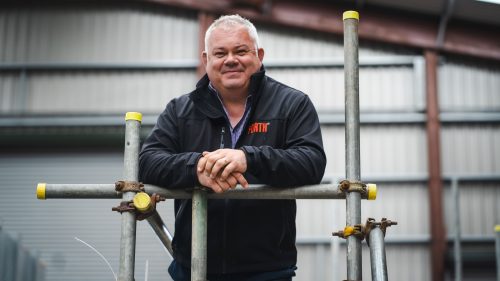Precision farming techniques could boost Cumbrian engineer

Cumbrian engineering business Forth Engineering has welcomed a government initiative to invest £220m to make agriculture more productive.
Mark Telford, Managing Director at Forth Engineering said his engineers are working on programmes to cultivate agricultural innovation.
“Boosting productivity, increasing food security, and empowering farmers with data-driven insights are just a few of the reasons why championing innovation from engineers in agriculture will help the industry become more resilient,” he said.
The UK Government announced last month that it would provide £220 million of funding to protect the future of an industry in ‘crisis’.
Supporting the implementation of innovative technologies in British farms, this funding is essential in providing tools that mitigate the current challenges within the agricultural industry.
Prime Minister Rishi Sunak told the National Farmers Union annual conference in Birmingham on the 20th of February 2024 that a total of £427m in grants would be available to farmers and businesses providing new “future-focused technology and productivity schemes” to ensure farmers can access new equipment, including kit which increases automation to reduce reliance on overseas workers.
It will also fund cost-saving energy measures, such as rooftop solar, to safeguard land for food production.
Telford added: “Engineers are vital in addressing these challenges with the future in mind. Using precision farming technologies, AI-driven data analytics, and sustainable solutions, the expertise of engineers up and down the country will address labour shortages, and ensure long-term food security for the country.
“Precision farming using GPS, sensors, and automation in silage spreading will enhance accuracy and efficiency and ensure adherence to national regulations. With guidance evolving consistently, adaptable technology will help to manage seasonal buffer zones, water quality, and ground conditions.
“Artificial intelligence (AI) is fast becoming commonplace in all lines of work, agricultural practices aren’t the exception. Utilising AI can help to process the vast amount of data collected on farms – predicting weather patterns, and helping Farmers to make data-driven decisions to optimise harvests,” he said.
With bases in Flimby, Cleator Moor and Barrow-in-Furness in Cumbria, Forth works across a range of sectors to help them deliver innovative and ground-breaking solutions to complex problems.
Forth’s Avexis robot is a previous winner of the Best Academic Collaboration Award at the Innovus Awards backed by the National Nuclear Laboratory and The University of Manchester’s Dalton Nuclear Institute to showcase pioneering technology being used in industry.








